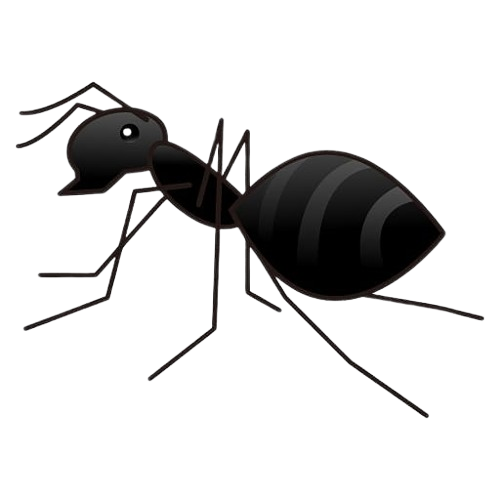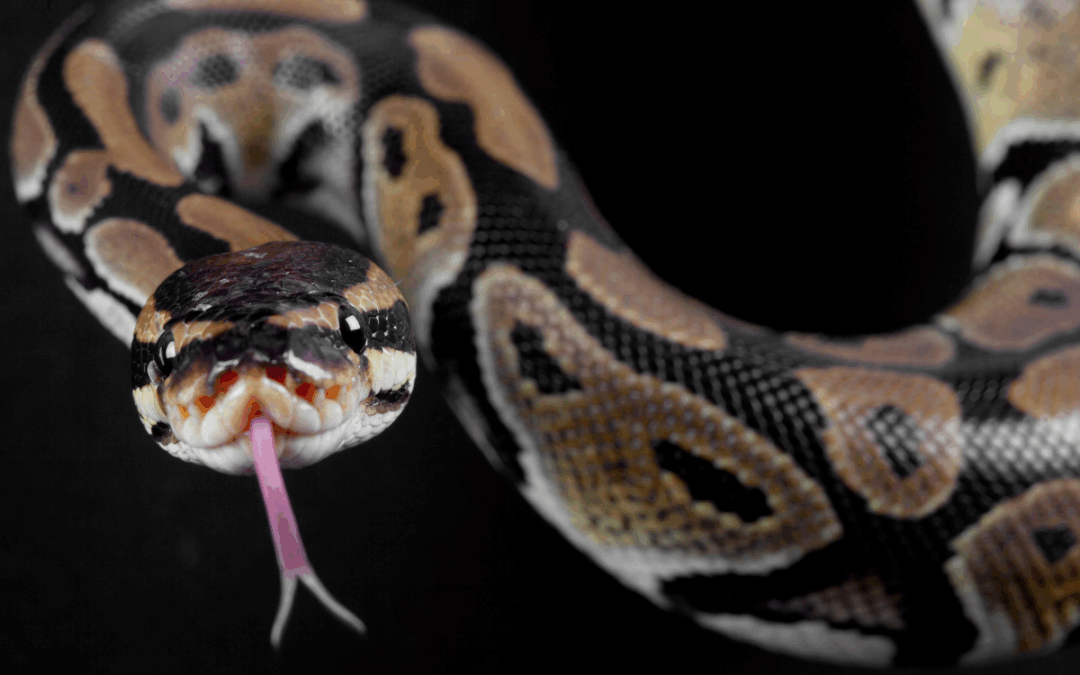
Nov 20, 2025 | Florida Snake Control
As fall brings milder temperatures to Miami, residents often take the opportunity to spend more time outdoors. However, this seasonal change also affects the behavior of local wildlife, including snakes. An unexpected encounter with a snake in your yard or near your home can be alarming. Understanding their habits is key to coexisting and minimizing unwanted interactions. This guide provides essential information on why you might see more snakes during the fall in Miami and offers practical, effective strategies for keeping your property secure. A proactive approach to wildlife management is the foundation of effective snake prevention in Miami.
Understanding Snake Behavior in the Fall
Snakes are cold-blooded, meaning their body temperature is regulated by their environment. In Miami’s climate, they remain active for much of the year, but their behavior shifts with the seasons.
Seeking Shelter and Warmth
As temperatures begin to cool, even slightly, snakes will actively seek warm, sheltered places. They may bask on sun-warmed pavement, rocks, or patios during the day. As evening approaches, they look for secure hiding spots that retain heat, such as under debris, in dense vegetation, or within burrows. Unfortunately, crawl spaces, sheds, and gaps in a home’s foundation can also provide this same sense of security.
Hunting for Food
The fall is also a time when many of a snake’s prey—rodents, lizards, and frogs—are actively preparing for winter. Snakes will follow these food sources, which can lead them directly to residential properties where these smaller animals are often abundant.
Common Snakes in Miami and Potential Risks
While the majority of Florida’s native snakes are non-venomous and beneficial to the ecosystem, it is vital to be aware of the few venomous species in our area.
- Non-Venomous Snakes: Species like the Black Racer, Garter Snake, and various water snakes are common and harmless. They play a crucial role in controlling rodent and insect populations.
- Venomous Snakes: Residents should be able to recognize potentially dangerous snakes. In South Florida, these include the Eastern Diamondback Rattlesnake, the Dusky Pygmy Rattlesnake, the Cottonmouth (or Water Moccasin), and the Coral Snake. These species typically avoid human contact but will bite if they feel threatened or cornered.
Given the potential risks, treating any unidentified snake with caution is the most responsible course of action.
Proven Strategies for Snake Prevention in Miami
The most reliable way to keep snakes off your property is to make your yard less attractive to them and their prey. Effective wildlife management focuses on habitat modification.
Eliminate Food Sources and Shelter
By removing the resources snakes rely on, you encourage them to move elsewhere.
- Maintain Your Landscape: Keep your lawn mowed and trim back dense shrubs and overgrown vegetation, especially around the foundation of your home. This reduces hiding spots for snakes and the pests they hunt.
- Remove Debris: Clear away woodpiles, leaf litter, rock piles, and any unused equipment from your yard. These create ideal harborage for snakes and rodents. Store firewood on a raised rack away from the house.
- Secure Trash Bins: Use trash cans with tight-fitting lids to avoid attracting rodents, which are a primary food source for many snakes.
Secure Your Home’s Exterior
Prevent snakes from entering your home by sealing potential access points. This is a critical component of snake prevention in Miami.
- Inspect and Seal: Thoroughly examine your home’s foundation, walls, and areas around pipes and vents for any cracks or holes. Seal these openings with durable materials.
- Check Doors and Vents: Install screens on crawl space vents and ensure weather stripping on doors creates a tight seal.
By implementing these habitat modifications, you can significantly reduce the likelihood of encountering snakes on your property.
While these preventative measures can make a big difference, some situations are best left to the professionals—especially when venomous snakes are involved. A professional snake removal service can help keep snakes from inhabiting your property, reducing the risk of encounters.
If you are dealing with a persistent snake issue or feel in harm’s way, contact a certified snake control professional. An expert can identify and remove the animal, as well as provide a comprehensive property assessment to identify and resolve underlying issues contributing to the problem.
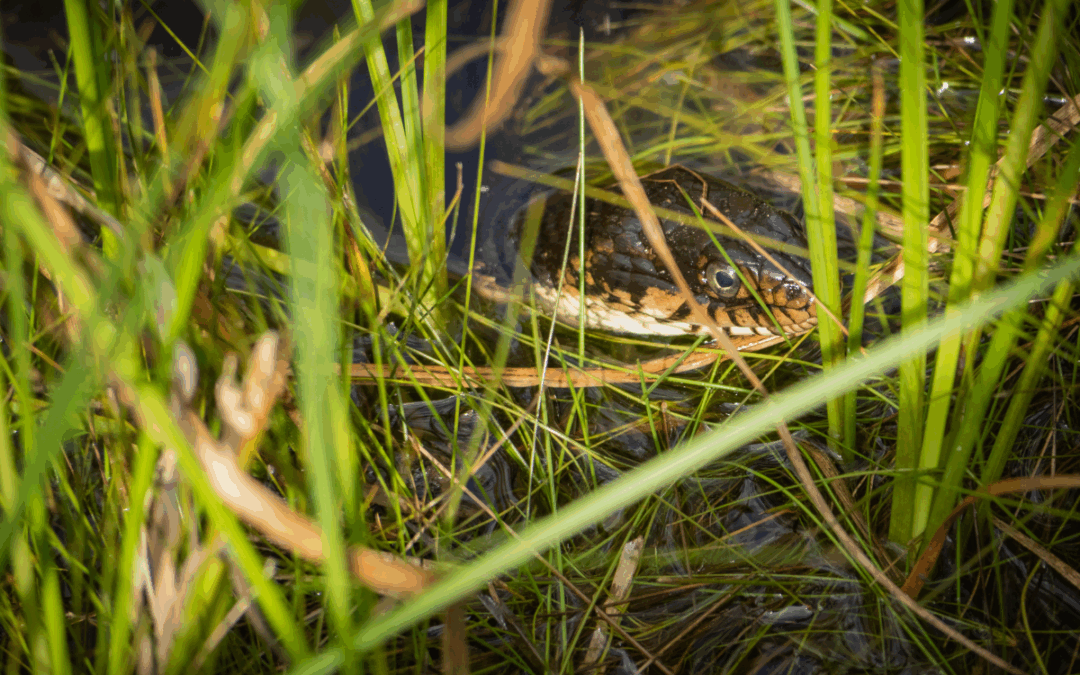
Sep 19, 2025 | Florida Snake Control
Florida’s warm climate and diverse ecosystems create habitats for over 46 snake species, making encounters a normal part of life. While most are harmless, six venomous species live here, making it important to know which ones pose risks and how to identify them. Education, prevention, and knowing how to respond are key. By understanding snake behavior, recognizing warning signs, and using proven prevention strategies, you can protect your family from Florida snakes while respecting these important members of Florida’s ecosystem.
A Guide To Florida Snakes
Florida’s Venomous Snake Species
Eastern Diamondback Rattlesnake
Florida’s largest venomous snake can grow up to eight feet. Recognizable by diamond-shaped patterns and a rattling tail, they inhabit pine flatwoods, scrub areas, and coastal regions. Their venom is powerful, but these snakes usually avoid people unless threatened.
Cottonmouth (Water Moccasin)
Often found in swamps, marshes, and lakeshores, cottonmouths have dark bodies and a white mouth interior. Unlike many snakes, they may hold their ground when approached. Their venom can cause significant tissue damage.
Coral Snake
Coral snakes have bright red, yellow, and black bands. Remember: red touches yellow, kills a fellow to distinguish them from non-venomous lookalikes. Secretive by nature, they prefer sandy soils and wooded areas. Their venom affects the nervous system.
Copperhead
Found in northern Florida, copperheads have copper-colored bodies with hourglass-shaped crossbands. While their venom is rarely fatal with treatment, it can cause pain and swelling.
Timber Rattlesnake & Dusky Pygmy Rattlesnake
Timber rattlesnakes live in northern forests, while pygmies are found statewide. Both have rattles, though pygmy rattles are faint. Venom can cause serious complications without treatment.
Identifying Habitats and Risk Areas
Natural Environments
Wetlands, pine flatwoods, scrub areas, and hardwood hammocks provide shelter for many species. Cottonmouths thrive near water, while coral snakes prefer sandy or wooded areas.
Residential Risk Zones
Yards with ponds, irrigation systems, or dense vegetation can attract snakes and their prey. Brush piles, woodpiles, and overgrown plants provide ideal hiding spots. Garages, sheds, and crawl spaces also offer shelter.
Warning Signs and Behavior
Visual Recognition
Venomous snakes may have triangular heads, vertical pupils, and heat-sensing pits, though these traits can be misleading. Instead, learn the distinct patterns and colors of dangerous species.
Behavioral Cues
Rattlesnakes shake their tails to warn intruders, cottonmouths show their white mouths, and most snakes retreat if given the chance. Striking is typically a last resort.
Prevention Strategies for Florida Homes
Landscape Adjustments
Keep grass trimmed, remove brush piles, and maintain a clear perimeter around the home. This reduces shelter for both snakes and the small animals they hunt.
Structural Improvements
Seal gaps under doors, cracks in foundations, and utility entry points. Use hardware cloth barriers under porches or decks. Fix leaks and eliminate standing water to discourage both snakes and their prey.
Responding to Florida Snake Encounters
If You See a Snake
Stay calm and slowly back away. Never try to catch or kill a venomous species. Give it space to escape.
In Case of a Bite
Call 911 or go to the nearest emergency room immediately. Never attempt to capture the snake, as this is unnecessary and could result in another bite. Remove jewelry and tight clothing from the affected area, and keep the person as still as possible until help arrives.
Florida’s snakes play a vital role in controlling pests and maintaining ecological balance. Learning how to identify species, modify your property, and respond appropriately will help you coexist with these reptiles. If you’re unsure whether a snake is venomous or how to handle an encounter, a trained snake removal expert can provide proper identification and humane removal. Contact us today for a free snake removal quote!
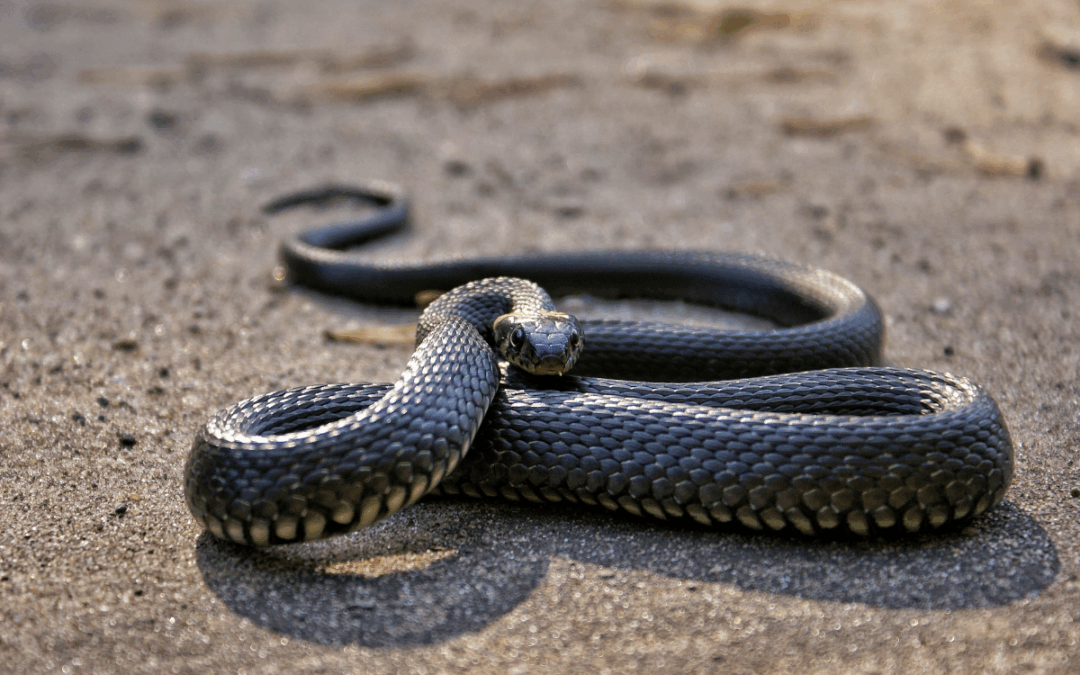
Aug 11, 2025 | Commercial
Pest problems can jeopardize the well-being, reputation, and daily operation of your business. Among the most concerning pests for commercial property owners are snakes. Their presence isn’t just unsettling; snakes can pose real well-being risks, disrupt business continuity, and may signal deeper pest issues on your property. Learn how to protect your business from pests with commercial snake control.
Commercial Snake Control
Why Snake Control Matters
Snakes can endanger both employees and customers, especially if venomous species are present. Even non-venomous snakes can prompt fear, panic, and unnecessary risk if not handled with care. An unexpected encounter could lead to injuries or business interruptions. Additionally, snakes are often attracted by existing rodent populations, which means their presence may indicate underlying pest or maintenance issues. A snake sighting inside your facility can also damage your professional reputation, erode customer trust, and result in negative publicity.
Key Steps to Prevent Snakes
- Keep Premises Tidy: Regularly trim grass, shrubs, and trees, and promptly remove outdoor debris or piles of wood. Maintaining neat landscaping limits hiding places for both snakes and rodents.
- Effective Waste Management: Secure trash bins with tight lids and remove food scraps promptly. This limits breeding grounds for rodents and removes potential food sources that attract snakes.
- Seal Entry Points: Inspect your property for gaps around doors, windows, walls, and utility entries. Professionally seal cracks and use durable door sweeps to prevent snakes from finding an easy way inside.
- Address Water Sources: Repair leaks, clear standing water, and ensure good drainage to reduce the likelihood of attracting both snakes and the prey they follow.
- Monitor and Maintain Storage: Keep storage areas organized and elevated off the floor where possible, reducing clutter and snake hiding spots.
- Install Physical Barriers: Consider installing snake-proof fencing around high-risk areas and use natural deterrents such as lemongrass or marigolds in exterior landscaping.
- Educate Staff: Train employees to recognize signs of snake activity and establish clear reporting procedures for potential sightings or pest evidence.
The Value of Professional Help
While consistent property maintenance is crucial, professional pest control services provide expertise that goes beyond routine measures. Licensed professionals can:
- Conduct thorough property inspections to identify unseen vulnerabilities and pest entry points.
- Develop long-term, customized prevention strategies tailored to your property’s specific needs.
- Implement environmentally responsible control methods, supporting your company’s commitment to public health and environmental stewardship.
- Provide compliance documentation to meet well-being standards, which is particularly important for regulated industries.
Take Action to Protect Your Business
Don’t let snakes or other pests threaten the well-being, reputation, or success of your business. Start implementing these prevention strategies and foster a pest-aware culture among your staff. For comprehensive protection, partner with a trusted, professional pest control provider. This investment in expert care protects your property, ensures the well-being of everyone onsite, and reinforces your commitment to responsible business practices.
Proactive commercial pest control isn’t just smart management—it’s a commitment to your people, your customers, and your community.
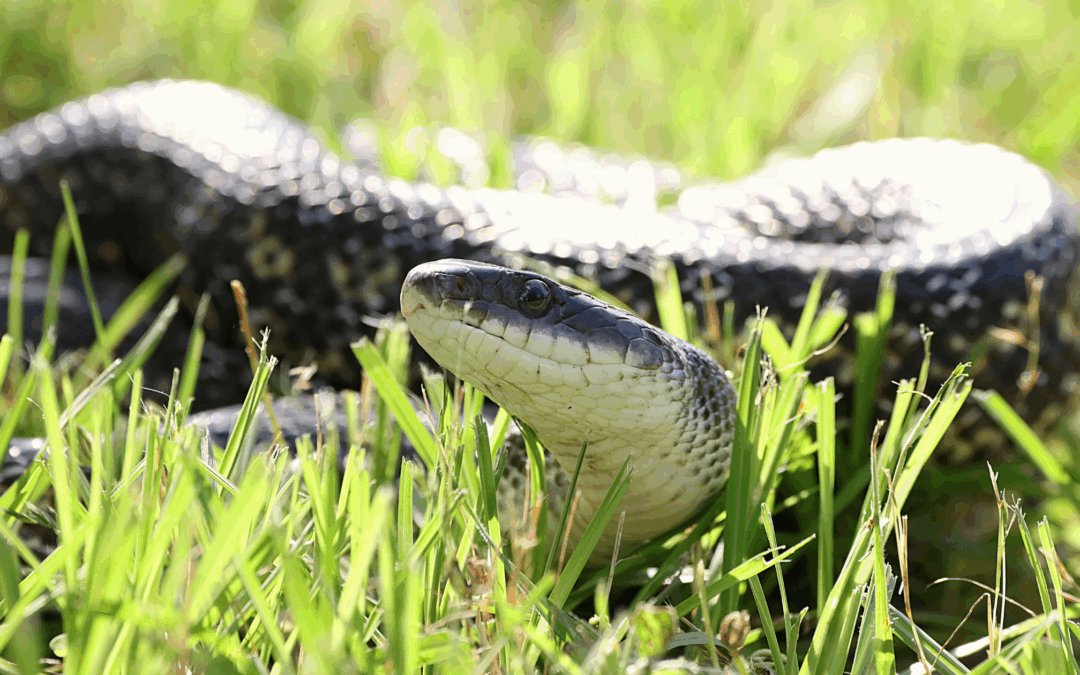
Jul 30, 2025 | Florida Snake Control
Living in Bonita Springs means enjoying warm weather, lush greenery, and vibrant wildlife. However, one aspect of Florida’s natural environment can cause concern for homeowners, snakes. While most snakes are non-venomous and play a critical role in controlling pests, it’s natural to want to keep them out of your living spaces. Fortunately, with some simple snake prevention steps, you can significantly reduce the chances of encountering a snake in or around your home.
Snake Prevention Tips For Bonita Springs
Seal Up Entry Points
Snakes are incredibly flexible and can squeeze through surprisingly small gaps. Even openings as small as a quarter of an inch can provide access to your home. Preventing their entry is one of the most effective defenses against unwanted visitors.
Tips for Sealing Your Home
- Inspect Your Home’s Exterior: Walk around your property and look for cracks, gaps, and holes in the foundation, walls, and along door frames.
- Seal Cracks and Holes: Use caulk, weatherproof sealant, or steel mesh to close gaps around windows, doors, and utility pipes.
- Install Door Sweeps: Add door sweeps to close gaps under exterior doors. This simple step can block off one of the easiest access points for snakes.
- Check Vents and Screens: Ensure crawlspace vents, attic openings, and other potential entry points are covered with fine-mesh screens.
By keeping your home sealed tight, you prevent snakes and other small critters from sneaking inside.
Clear Yard Clutter
Your yard can be a haven for snakes if it offers plenty of hiding spots and shade. Woodpiles, tall grass, and overgrown shrubs create the perfect environment for snakes to shelter or hunt for food.
Yard Maintenance Tips
- Trim Vegetation: Regularly cut your grass and trim bushes to eliminate potential hiding spots. Snakes prefer areas where they can move undetected.
- Remove Debris: Clear away piles of leaves, wood, or rocks. If you need to keep firewood, store it at least 12 inches off the ground and away from your home.
- Space Out Plants: Avoid dense planting near your house. Leave some space between shrubs and your home’s foundation to reduce hiding areas.
By making your yard less snake-friendly, you can encourage them to move on to less manicured locations.
Remove Food Sources
Snakes are often drawn to properties because they follow their food. Rodents, insects, and other small animals all attract snakes. Reducing these prey animals around your home will make it less enticing for snakes.
Steps to Eliminate Food Sources
- Rodent Control: Check for signs of rodents, such as droppings or chew marks, and call a rodent control professional if necessary.
- Secure Trash: Keep garbage bins tightly sealed to avoid attracting rodents and insects.
- Eliminate Standing Water: Standing water can attract amphibians and insects, which in turn attract snakes. Regularly empty items like buckets, birdbaths, or unused containers that collect water.
- Pet Food and Birdseed: Avoid leaving pet food or birdseed outside, as these can also attract small animals that snakes prey on.
Taking the time to eliminate food sources reduces the chances of snakes hunting near your home.
Secure Crawlspaces and Garages
Cool, shaded areas like crawlspaces and garages are prime locations where snakes might choose to hide. Without proper precautions, these areas can become long-term residences for snakes.
How to Snake-Proof These Areas
- Close Off Vents: Cover crawlspace and attic vents with wire mesh screens to prevent entry while maintaining airflow.
- Install Garage Door Seals: Check the bottom of your garage door for gaps and replace or install rubber seals if needed.
- Declutter: Remove stored items like boxes or unused equipment scattered on the floor. Keep storage areas organized to eliminate potential hiding spots.
- Monitor Doors and Windows: Always keep garage doors and windows closed when not in use, even if only for a short time.
Regularly inspecting and securing these spaces keeps them off-limits to snakes and other pests.
Snakes may be part of life in Bonita Springs, but they don’t have to be part of your home. Practicing good snake prevention methods like sealing entry points, clearing yard clutter, removing food sources, and securing shaded areas can go a long way. If snakes are still showing up, call a pest control company near you for expert snake removal help and peace of mind.
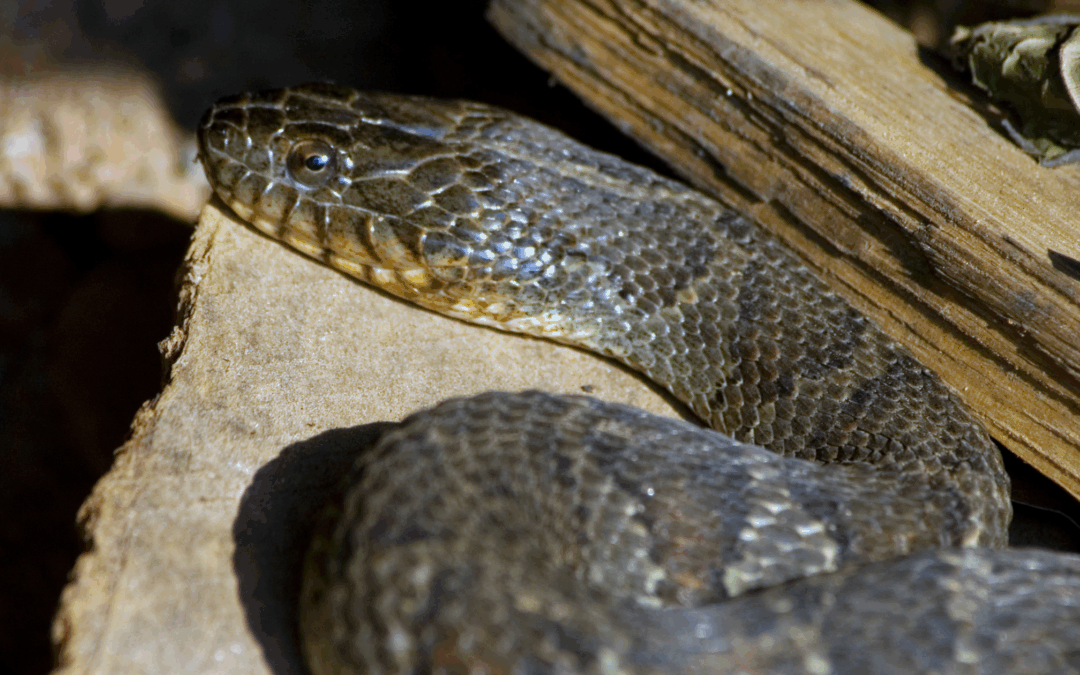
Jul 21, 2025 | Snake Control
Tennessee’s picturesque landscapes are a joy to live in, filled with rolling hills, lush greenery, and thriving wildlife. But with all this natural beauty comes one thing every homeowner dreads encountering too close to home: snakes. While most snakes you’ll find here are harmless and even beneficial as natural pest controllers, you probably don’t want them turning your home into their habitat. Fortunately, there are simple, effective ways to keep snakes out of your living spaces. Follow these practical tips to snake-proof your Tennessee home and enjoy peace of mind.
How To Snake-Proof Your Tennessee Home
Seal the Gaps
Snakes are experts at finding their way inside through even the smallest openings. Cracks as narrow as a quarter inch can become their point of entry, so it’s crucial to inspect your home and seal gaps thoroughly.
How to Snake-Proof Your Home’s Exterior
- Inspect Exterior Walls and Foundations: Conduct a detailed walk-around, looking closely at cracks in the foundation, walls, and even utility line entry points.
- Use Caulk or Weatherproof Sealants: For small gaps and cracks, seal them up with caulk or silicone-based products to create a pest-proof seal.
- Install Door Sweeps: If light shines through beneath your doors, that’s likely a big enough space for a snake. Install rubber door sweeps under exterior doors to block their path.
- Cover Vents with Screens: Many homes have attic vents and crawlspace openings. Use fine-mesh wire screens to cover these areas while keeping ventilation intact.
Securing these entry points doesn’t just deter snakes; it also prevents insects and rodents from getting inside.
Tidy Up the Yard
Your yard can unintentionally invite snakes if it offers prime hiding spots. Snakes are drawn to areas where they can safely rest and hunt prey. Keeping your outdoor space tidy goes a long way toward making your property unappealing to these slithering creatures.
Yard Maintenance Tips
- Keep Grass Trimmed: Tall grass gives snakes plenty of cover to move around unseen. Mow your lawn frequently, especially near your home’s foundation and fences.
- Clear Woodpiles and Debris: Firewood and leaf piles are warm, sheltered spots snakes love to hide in. Store firewood at least 12 inches off the ground and keep it far from the house. Remove leaves, rocks, and other debris regularly.
- Trim Plants and Bushes: Dense shrubbery close to your home can create a perfect hiding place. Maintain a well-trimmed yard and ensure there’s a clear gap between plants and your home’s walls.
- Avoid Ground-Level Clutter: Tarps, discarded materials, or even outdoor toys lying around make for inviting snake shelters. Stow items neatly in sheds or off the ground.
A clutter-free and well-maintained yard sends a clear message to snakes that they won’t find a cozy home here.
Steps to Deter Prey
- Rodent Control: Snakes love to feast on mice and rats. Look for signs of rodent activity (gnaw marks, droppings) and eliminate infestations promptly using traps or professional rodent control services.
- Secure Trash Bins: Rats and other pests scavenging through open garbage can attract snakes. Use tightly sealed lids on trash bins.
- Avoid Leaving Pet Food Outdoors: Pet kibble left outside overnight can attract both rodents and snakes. Feed pets indoors or pick up food bowls promptly.
- Eliminate Standing Water: Stagnant water in gutters, flowerpots, or birdbaths attracts both insects and amphibians, which snakes prey on. Regularly empty or fix areas where water collects.
Reducing the food supply makes your property far less appealing for hungry snakes.
Secure Sheds, Garages, and Crawlspaces
Cool, dark spaces like garages, sheds, and crawlspaces are highly attractive to snakes. Without proper precautions, these areas can become their go-to hideaways.
Tips to Snake-Proof Storage Areas
- Close Gaps Around Doors: Like your home’s main doors, garage and shed doors can have gaps underneath. Install new weather-sealing strips to block them.
- Screen Openings: Cover crawlspace vents, attic openings, and other access points with durable wire mesh screens to keep larger pests out while retaining airflow.
- Declutter Storage Areas: Avoid clutter in sheds and garages. If items are stored on the floor, consider using shelves to keep them elevated and reduce hiding places.
- Keep Doors Shut: Make it a habit to close garage or shed doors when not in use. Leaving them open, even briefly, can invite snakes to slip inside unnoticed.
Regular inspections of these areas can help catch any issues before they escalate.
Keep Snakes Out—and Peace of Mind In
Snake-proofing your Tennessee home doesn’t have to be overwhelming. Simple steps like sealing entry points, clearing yard clutter, removing food sources, and securing storage areas can make a big difference. And if snakes keep showing up, calling a wildlife services or pest control company near you can give you the expert support—and peace of mind—you need.







